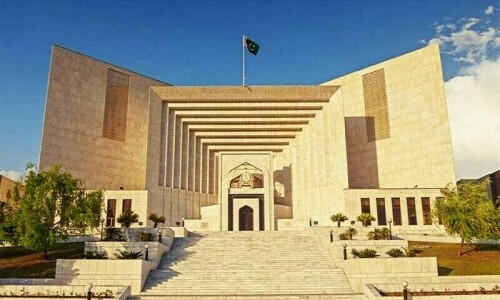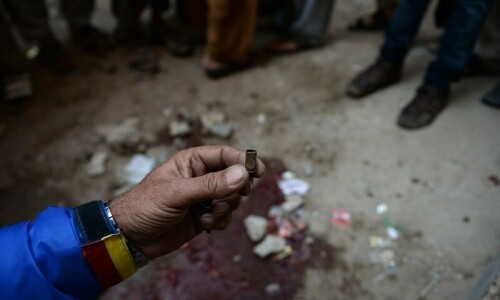KABUL, April 14: Al Qaeda and Taliban militants on the Pakistan-Afghanistan border are increasingly facing pressure on two fronts and they can be squeezed with more coordination between the neighbours, a US official said on Monday.
The Taliban have been battling US and other foreign troops in Afghanistan since 2001.
Pakistani forces have also been fighting the militants, based in tribal regions along the border, who have unleashed an unprecedented wave of violence in the country since the middle of last year.
“To some extent, the extremists in those areas are now fighting on two fronts,” US Assistant Secretary of State Richard Boucher told a news conference in Kabul.
“They have to deal with pressures from the Pakistan side and the pressure from the Afghan side. The more we can do that in concert with each other, the more squeezed the Al Qaeda and Taliban supporters in those areas will feel,” said Mr Boucher who makes regular trips to both Pakistan and Afghanistan.
Al Qaeda leader Osama bin Laden is believed to be hiding out somewhere along the mountainous border.
Relations between the neighbours have been dogged by Afghan complaints Pakistan is not doing enough to wipe out Taliban sanctuaries and stop the flow of fighters and arms into Afghanistan.
But Mr Boucher cited what he called renewed energy in relations between the two countries.“What I have found in our discussions is a real commitment to work together, to coordinate with each other ... more intensely,” he said.
Mr Boucher said the Pakistanis were determined to tackle the problem. “What we’re seeing is now, first of all, a lot of Pakistanis unfortunately getting killed but also a lot of determination on the Pakistani side to deal with it,” he said.“We’re working very hard with the new Pakistani government to take advantage of the opportunity to build democracy and help work with them against extremism,” he said.
Mr Boucher dismissed Taliban threats of more violence. “The Taliban threats this year of a winter wave seem to have gone the way of last year’s spring offensive: it never really happened,” he said.
Mr Boucher welcomed efforts to improve coordination of international help for Afghanistan but said the country still faced big problems.
He cited weak governance, particularly at the local level, corruption and narcotics, which he said fed into graft and the insurgency.
Afghanistan is the world’s largest producer of opium, the raw material for heroin, and in some areas the Taliban are in league with the drug runners, security officials say.—Reuters














































Dear visitor, the comments section is undergoing an overhaul and will return soon.